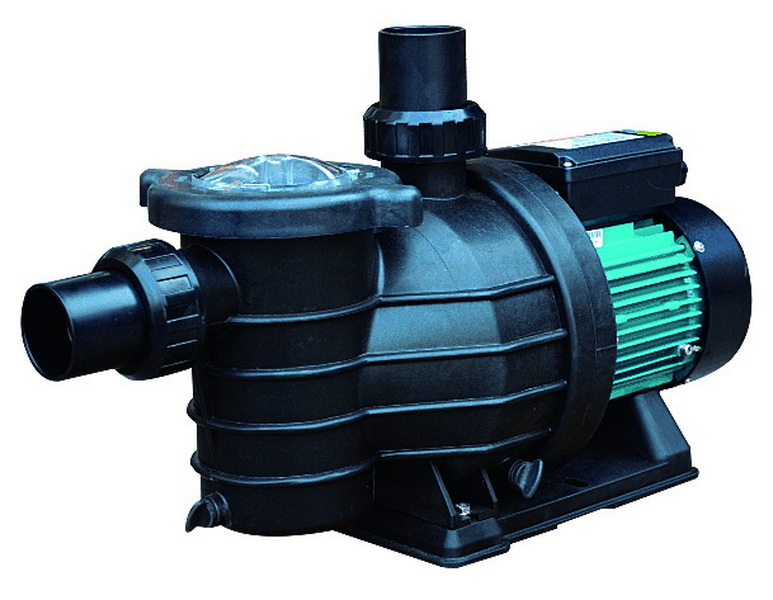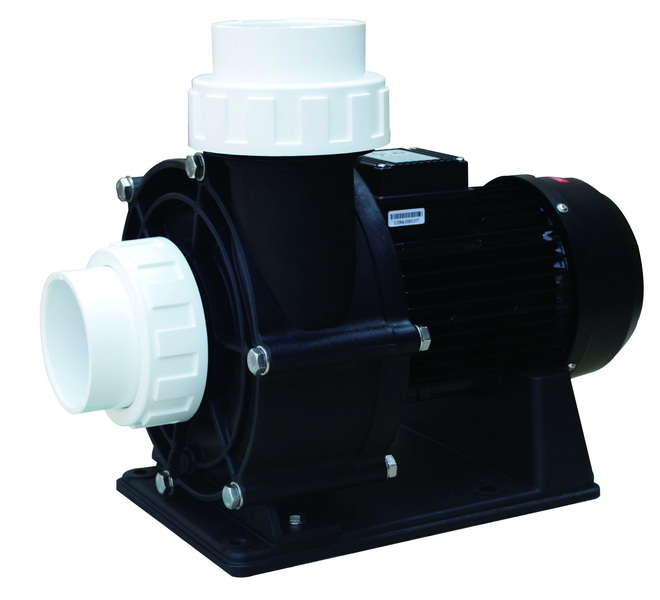







Content Menu
● Why Choose a Chinese OEM for Pool Filtration Systems?
● Core Product Lines for Pool Filtration
● Key Features to Evaluate in a Pool Pump
>> Pump Materials and Build Quality
>> Noise Level
● Global Certification and Quality Control
● Case Studies: Benefits Realized by Clients
● Frequently Asked Questions (FAQs)
>> 1. What factors determine the right size of a pool pump?
>> 2. How do energy-efficient pool pumps save money?
>> 3. Can I customize a pool pump for my brand?
>> 4. What maintenance does a pool pump require?
>> 5. How long is the typical warranty for pool pumps?
In the modern swimming pool industry, finding a good pool pump is essential for maintaining water clarity, hygiene, and overall pool health. Whether you operate a private pool or supply filtration products to the market, understanding what makes a reliable pool pump can help you optimize performance and reduce maintenance costs. As a professional factory in China specializing in top-tier sand filters and filtration solutions, along with OEM services for foreign brands, wholesalers, and manufacturers, we aim to share our expert insights into what defines a good pool pump.

Chinese manufacturers, especially those with advanced automatic machinery and stringent quality control, offer compelling advantages for pool filtration equipment sourcing:
- Cost Efficiency: Competitive pricing without compromising quality.
- Customization: Flexible OEM and ODM services tailored to client specifications.
- Full Product Range: From sand filters and DE (Diatomaceous Earth) filters to cartridge filters, pumps, LED lights, and accessories.
- Speed and Volume: Rapid production capabilities meeting large-scale demands.
- Quality Certifications: Compliance with ISO9001, CE, RoHS, and other international standards.
Our factory leverages intelligent machines to ensure every product is meticulously crafted, from pool filters to pumps and lighting components.
Your pool pump choice is often influenced by the filtration system it supports. Here's an overview of the main filtration types we supply:
- Sand Filters: Popular for durability and ease of maintenance; ideal for residential and commercial pools.
- DE Filters: Offer finer filtration by using diatomaceous earth, suitable for pools requiring crystal-clear water.
- Cartridge Filters: Easy to clean and replace, preferred in medium-sized pools.
- Pool Pumps: Vary in horsepower, flow rate, and energy consumption; a critical component for system efficiency.
- LED Pool Lights and Accessories: Enhance pool aesthetics and safety.
When selecting the best pool pump, several technical criteria come into play:
The flow rate, usually measured in gallons per minute (GPM) or cubic meters per hour (m³/h), indicates how much water the pump can circulate. Ensure the pump matches your pool's size and filtration needs. Pump head measures the resistance against the pump pushing water through the system; higher pump heads require more powerful motors.
Energy costs are a major consideration. Variable speed pumps, which adjust motor speed according to pool demands, save energy compared to single or dual-speed pumps. Look for pumps with energy-saving certifications or advanced motor technology.
Good pool pumps feature durable materials like corrosion-resistant thermoplastics and stainless steel components in wet-end parts. This prolongs pump life, especially in chemically treated pool water.
A quiet motor enhances user experience. Check decibel ratings and opt for models with noise-dampening technology where possible.

A good pool pump should comply with international safety and performance standards:
- ISO9001: Quality management certification.
- CE Marking: Conformity with European health, safety, and environmental protection standards.
- RoHS Compliance: Restriction of hazardous substances.
- UL Listing: Safety verification in the US market.
Our factory's products meet these certifications through strict internal quality audits and third-party inspections, ensuring confidence for international buyers.
Engaging with a Chinese manufacturer for OEM pool pumps involves several key steps:
1. Inquiry and Specification Sharing: Clients provide detailed requirements including motor size, flow rate, filtration type compatibility, and certifications.
2. Sample Development: Our factory produces prototypes for client approval.
3. Quality Checks & Tooling: After sample approval, tooling is finalized, and production begins with ongoing QC inspections.
4. Production & Delivery: Bulk pump manufacturing is scheduled with transparent lead times. Logistics support is provided to major export locations.
5. After-Sales Support: Warranty services and technical advice are offered to maintain long-term client relationships.
- European Pool Equipment Brand: Reduced total manufacturing cost by 20% after switching to our OEM pump models while maintaining CE and RoHS certifications.
- US Wholesale Distributor: Improved inventory turnaround by 30% due to our quick delivery and quality consistency.
- Middle East Resort Chain: Customized LED pool lights and pumps enhanced pool ambiance while saving 15% energy consumption.
A good pool pump combines performance, durability, and energy efficiency, tailored precisely to the pool system it supports. Chinese OEM manufacturers provide reliable, certified, and customizable solutions that meet international market demands. By choosing a supplier with advanced production capabilities and strict quality control, you ensure your pool filtration systems run smoothly and efficiently for years to come. Investing time in evaluating pump features and collaborating closely with your OEM partner will pay off with cost savings and satisfied customers.

The pool's volume, filtration system capacity, and desired turnover rate are crucial. A pump too small won't filter effectively; too large wastes energy.
Variable speed pumps adjust motor power, reducing electricity usage by up to 70% compared to single-speed pumps.
Yes, most Chinese manufacturers offer OEM options including branding, motor specifications, and packaging.
Regular cleaning of strainers, checking seals for leaks, and ensuring no blockages help extend pump life.
Warranty periods vary but generally range from 1 to 3 years depending on the manufacturer and pump model.
This guide explains how to safely increase pressure on a pool pump by restoring healthy water flow. Learn to diagnose low pressure, clean baskets and filters, fix air leaks, adjust valves and pump speed, and know when equipment upgrades or gauge replacement are necessary.<br />
This in‑depth guide explains how much it costs to replace a pool pump, covering typical price ranges, pump types, labor charges, and long‑term energy savings. Learn when to repair vs replace, DIY vs professional options, and how OEM pump and filter solutions can reduce lifetime ownership cost.<br />
Learn exactly how long to run a pool pump daily for crystal‑clear, safe water and lower energy bills. This in‑depth guide explains turnover, seasonal adjustments, single‑ vs variable‑speed schedules, energy‑saving tips, and practical examples, plus answers to common runtime questions.
This in‑depth guide explains the real reasons your swimming pool pump is not working, from power and priming issues to clogged impellers, dirty filters, and motor failures. Learn step‑by‑step troubleshooting, key maintenance tips, and when to repair or replace your pool pump.
Learn how to remove a pool pump motor safely and efficiently with this step‑by‑step guide. Discover the tools you need, how to disconnect power and plumbing, when to call a pro, and how OEM filter and pump solutions can support overseas pool brands and wholesalers.<br />
This article introduces leading Pool Cleaning Equipment Manufacturers and Suppliers in the UK, outlines their key products, and explains how international brands can combine UK distributors with Chinese OEM factories to build competitive, high‑quality private‑label pool cleaning and filtration lines.
This article outlines the leading Pool Cleaning Equipment Manufacturers and Suppliers in America, explains key product categories such as sand filters, pumps, and robotic cleaners, and shows how importers can combine U.S. brands with Chinese OEM partners to build competitive, high‑margin pool equipment portfolios.<br />
This article introduces the European market for pool equipment and accessories, profiles key Pool Cleaning Equipment Manufacturers and Suppliers, and explores OEM opportunities for Chinese factories producing sand filters, pumps, cleaners and LEDs for European brands and wholesalers.<br />
This article profiles top Pool Filter Valve Manufacturers and Suppliers in Canada, including Praher Plastics, global brands like Hayward and Carvin, and leading distributors. It explains key valve types, buying factors, and how foreign OEM factories can partner with Canadian suppliers for complete pool filtration solutions.<br />
Discover top Pool Filter Valve Manufacturers and Suppliers in Korea, from Korea Filter to SEDA, offering innovative multiport valves, OEM services, and eco-friendly designs for global pools. Explore advancements, certifications, and FAQs in this comprehensive guide to superior filtration solutions.
This article introduces leading Pool Filter Valve Manufacturers and Suppliers in Japan and Asia, covering valve types, key Japanese pool brands, OEM opportunities, and application segments. It explains how advanced engineering, strict quality control, and strong visual marketing help exporters win global pool projects.
This article introduces the main types of Pool Filter Valve Manufacturers and Suppliers serving Russia, including local distributors, industrial filter producers, global brands, and Chinese OEM partners. It explains key selection criteria, product ranges, and OEM opportunities for Russian pool projects.<br />
This article introduces the leading Pool Filter Valve Manufacturers and Suppliers in Australia, explains common valve types and technical features, highlights major distributors and OEM opportunities, and offers practical tips for international buyers sourcing compatible filtration valves and systems.
This article introduces Italy’s leading Pool Filter Valve Manufacturers and Suppliers, detailing their technologies, materials, OEM services, and application scenarios. It explains how Italian valves integrate with sand, DE, and cartridge filters and why global brands choose Italian partners for premium pool filtration solutions.<br />
This article introduces the Portuguese market for pool filtration equipment and highlights how local specialists, European brands, and Chinese OEM Pool Filter Valve Manufacturers and Suppliers cooperate to serve residential and commercial pools, offering multiport valves, filters, pumps, and customized OEM solutions.<br />
This article explains whether you can safely use pool filter sand in an aquarium, covering sand types, preparation, pros and cons, plant and fish compatibility, maintenance tips, and alternatives. It helps hobbyists choose and manage substrate using pool-grade filtration media.
This article explains when to backwash a pool filter using pressure readings, water clarity and flow as guides. It covers sand and DE filter schedules, backwash steps, common mistakes, troubleshooting cloudy water, and how OEM sand filter systems can simplify maintenance for global pool owners.<br />
This article explains what pool filter balls are, how they work, and why they are an increasingly popular alternative to sand in residential pool filters. It covers benefits, installation, maintenance, compatibility, and OEM opportunities for brands seeking high‑performance filtration solutions.<br />
This article explains how often to change a pool filter cartridge, covering typical 1–3 year lifespans, signs of wear, and factors like usage, climate, and maintenance. It shows how cleaning frequency, pressure readings, and water clarity guide replacement and highlights the value of OEM cartridge solutions.
This article explains how often to change a pool filter cartridge, covering typical 1–3 year lifespans, factors that affect replacement timing, and clear signs of wear. It outlines cleaning versus replacement, residential vs commercial schedules, and highlights OEM cartridge solutions for complete pool filtration systems.<br />
